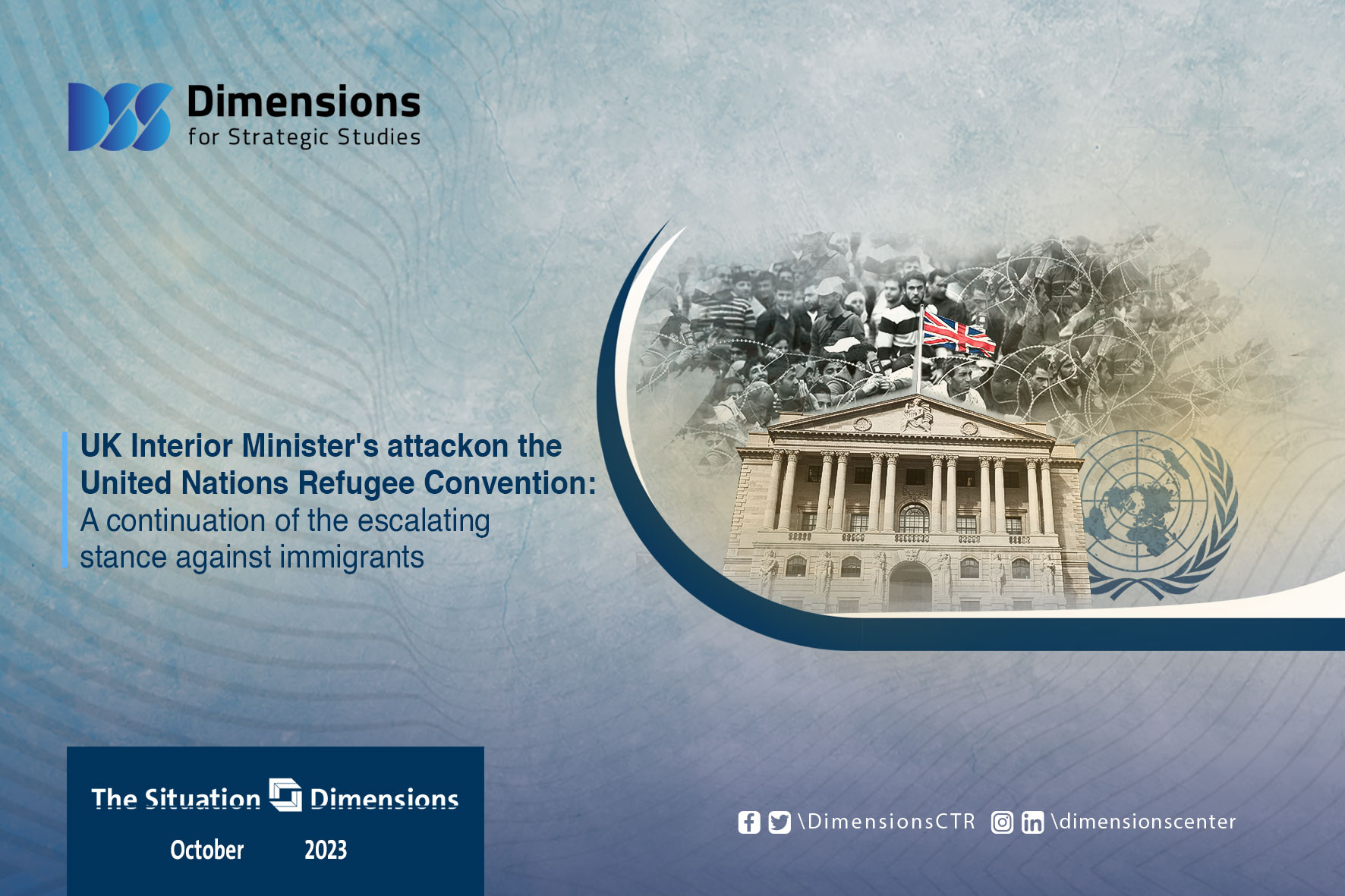
UK Interior Minister's attack on the United Nations Refugee Convention: A continuation of the escalating stance against
2023-10-041707 view
Recently, the UK Interior Minister, Suella Braverman, articulated her intentions to overhaul the current asylum application process. Furthermore, Minister Praverman raised substantial doubts regarding the continued relevance of the 1951 Refugee Convention endorsed by the United Nations. She contends that while the convention was initially framed to cater to European interests during its inception, the geopolitical landscape has evolved significantly since. Her remarks might suggest an underlying bias against the predominant influx of immigrants from regions like Africa and the Middle East. This perspective insinuates that the convention, in its current state, no longer aligns with European priorities but seemingly caters to other interests as if they hold lesser significance.
Furthermore, in more controversial remarks, Minister Praverman opined that multiculturalism has failed. She believes it doesn't place significant demands on new arrivals to integrate, but instead allows for the existence of parallel lives within society, in her view. Specifically, this latter viewpoint represents a significant departure from one of Britain's most cherished and essential values: diversity. This stance prompted a wave of opposing reactions and statements from politicians, journalists, and religious figures.
It's worth noting that the issue of immigration has become a major concern and interest for the British voter. Over the years, the Conservative Party has steered the narrative, turning immigration into a primary worry for the British electorate. This issue has been burdened with the responsibilities of various challenges and repercussions faced by British society—a strategy seen replicated in many countries around the globe.
The Interior Minister's statements also seem intertwined with the ongoing leadership crisis within the Conservative Party and the upcoming elections in 2024. Amidst the backdrop of inflation and an economic crisis, the mood of the voters is shifting towards viewing immigrant and refugee issues as a burdensome crisis for the country. This sentiment is often expressed through protests and demonstrations against the government's policies, especially following the decision to house refugees in luxury hotels.
This is not far from the recurring tactic seen in several countries, where the issue of refugees and immigration is used as a political card. As evident in the Turkish case, there seems to be a common set of dynamics and political motivations among different nations to employ such populist rhetoric against refugees and immigrants.
Conversely, when considering the UK's principal opposition, the Labour Party, it's improbable that they would leverage the topic of immigration in the same vein as certain hardliners within the Conservative Party. The Labour Party's foundation is rooted in globalist and leftist ideologies, mirroring the sentiments of its electorate. Consequently, it is anticipated that the party would approach the subject of immigration with a measured and nuanced perspective, refraining from using it as a mere political tool.
While the immediate demands of the Interior Minister are unlikely to directly instigate an immediate alteration to the 1951 Refugee Convention, the long-term implications shouldn't be dismissed. The "domino effect" is plausible: these demands could prompt a reassessment of the convention by numerous nations. Particularly, when a globally influential nation like Britain challenges the convention and the general rights of immigrants, it might lead to a diminishing commitment to it, with the potential enactment of national legislations that conflict with the essence of the convention.





